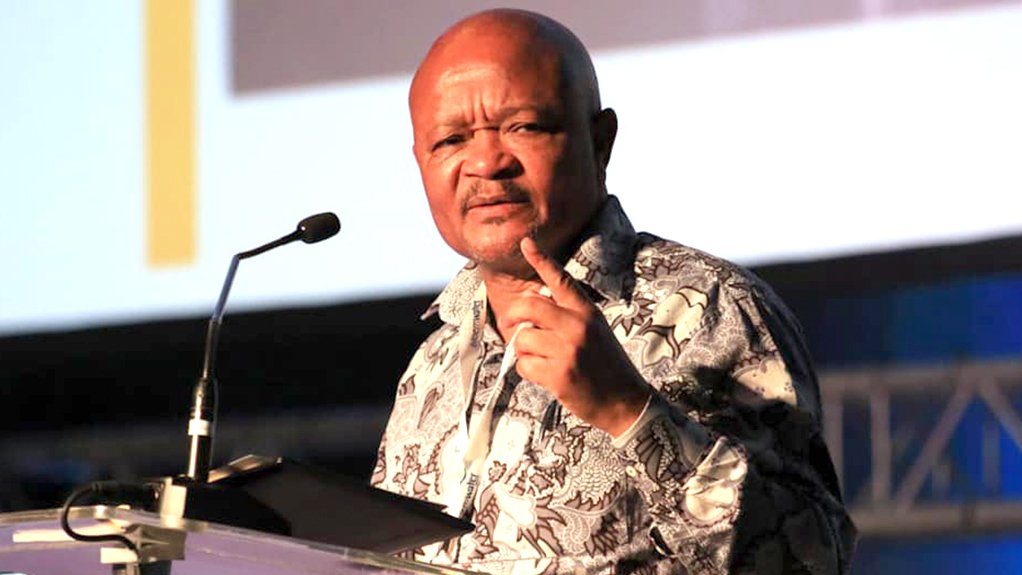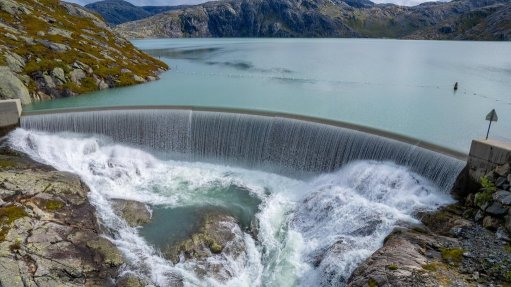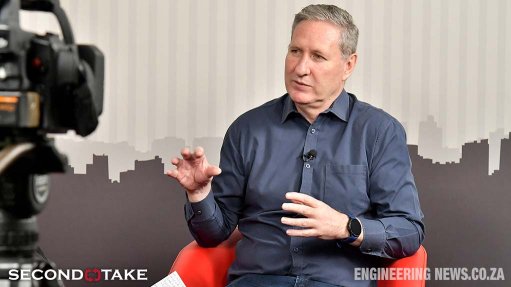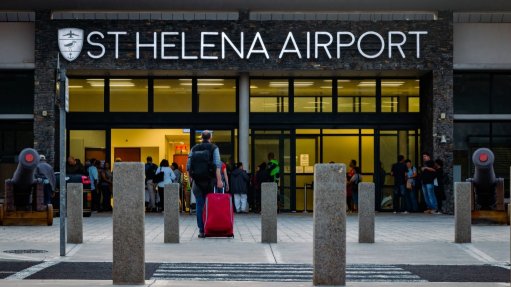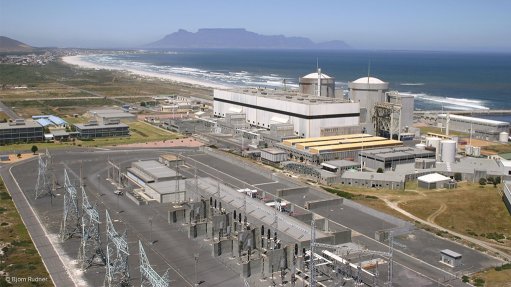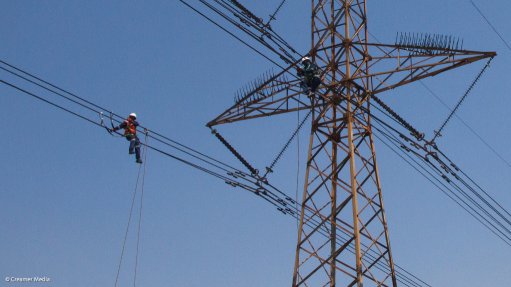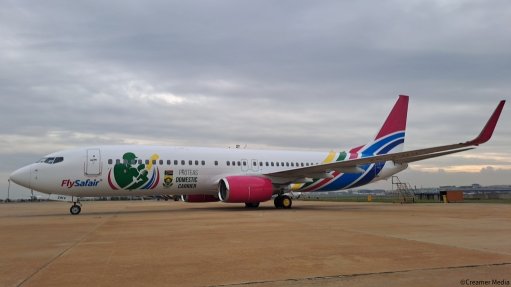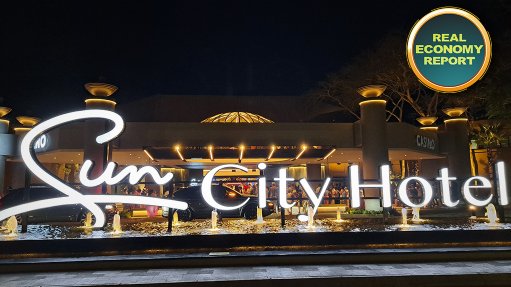DWS sets out challenges in the water sector, mulls reforms as water services deteriorate
The Department of Water and Sanitation (DWS) is proposing several measures and reforms that could bring about financial and service delivery sustainability as it works to ensure the overall sustainability of South Africa’s embattled water sector.
Amid the failures of water delivery services throughout the country, most recently in Hammanskraal, in Pretoria, which is at the centre of a deadly Cholera outbreak, the DWS is reviewing its options to bring non-performing municipalities in line with gazetted minimum norms and standards when it comes to water provision.
Speaking during a National Ministerial Water Sector Sustainability Symposium on Thursday, Water and Sanitation Minister Senzo Mchunu indicated that water services sustainability had become a concern for many.
“Hammanskraal and the crisis that we are experiencing in that area is a stark reminder that our main challenge may as well be on water services management and sustainability of the current management systems that we are dependent on.”
“We have lost 17 lives. The inevitable question that comes is could it not have been avoided? And the inevitable answer is that it could have been avoided. Some information is emerging that the problems that are confronting us there were indicated as long ago as 2004 – almost 20 years ago,” he continued.
“We need to act, and act fast, but as we do so, fixing things here and there, in the main, we have to persist with the question, is our water services management system sustainable?”
DWS director-general Dr Sean Phillips told the various water experts and leaders in attendance that water services functions had been deteriorating since 2000, first in rural regions, extending now to at least five to eight metropolitans having serious challenges with regard to water service reliability.
The picture of the sustainability of water services is “not pretty”, he said, pointing to the Green Drop report, published last year, which found that about 40% of wastewater treatment systems run by municipalities were in a critical state.
“What is the core problem? Why are we in this situation? We seem to be in a vicious circle, a vicious downward spiral.
“We have four main things happening simultaneously and they feed on each other. We have poor, declining services, and that, in turn, is partly caused by reducing payment for services. The reducing payments is one of the reasons for poorly performing institutions with increasing debt that in turn results in low investment.”
This meant to turn this situation around, the DWS needed to address all of the challenges simultaneously, with Phillips adding that the department must strengthen its role as the regulator to enforce compliance with the norms and standards for water services.
Some of the reforms proposed include introducing an operator's licence system for water service providers (WSPs), amending Section 63 of the Water Services Act, implementing strengthened and standardised debt collection measures for DWS and water boards and implementing a three-year bulk water tariff setting cycle, besides others.
“To reverse the current deterioration in water services, we are suggesting that the way in which we can strengthen our regulation of WSPs, and the regulation of adherence to minimum norms and standards, is to introduce stronger and more specific minimum requirements to operate water and sanitation services,” he explained.
In line with this, the DWS plans to introduce a requirement for all WSPs to have an operating licence, with licensing requirements that focus on the competency and performance levels of service providers, linked to the DWS’s gazetted minimum norms and standards for water and sanitation services.
To enable these reforms, the department will amend the Water Services Act to make it clearer which functions fall under a WSP and which functions are under a water services authority (WSA), ensure that WSAs can only recognise WSPs that have an operating licence and that only licensed WSPs can provide water in a municipality.
The licence will focus on outcomes, including the provision of safe, adequate and reliable services to customers.
The DWS aims to design the licensing system to be context specific, as licensing requirements for Joburg Water, for example, will differ from the requirements for a small rural municipality.
Further, the department will implement a transition period to allow existing WSPs time to meet the requirements for an operating licence.
“With the licensing of WSPs, we will need to be very careful that we do not create unnecessary bureaucracy and that the licensing system is kept as simple as possible,” Phillips warned.
Coupled with this proposal is the amendment of Section 63 of the Water Services Act.
In worst-case scenarios, where there is a consistent failure by a WSP to provide the required service, despite DWS directives to address their weaknesses in delivering water services and their noncompliance with the norms and standards, Section 63 enables the Water and Sanitation Minister to intervene.
Currently, however, the Minister faces limitations in his reach, as Section 63, in its current form, allows the DWS to take over only the technical functions of the municipal water and sanitation department, and not the revenue collection portion, which leaves the DWS unable to fund the appointment of a competent WSP.
The amendments involve clarifying that, if the DWS is to take over, it needs to also take over the revenue collection and other functions, because that would be the only way of financing the appointment of and handover to a licensed WSP.
“We are aware that reforms need to be implemented very carefully, [as] they often have unintended consequences. We need to be very thoughtful about how we would go about implementing this reform.”
The amendments will enable the DWS to appoint a licensed WSP; however, to do that, a portfolio of licensed and ready WSPs will be required.
“We are going to have to do this incrementally, create the licensing system [and] encourage organisations such as the water boards, maybe the private sector as well, to get themselves licensed as WSPs, so that we can have an array of WSPs available to be appointed in the event of a Section 63 enforcement. It will take time to develop that licensed WSP capacity,” Phillips pointed out, adding that any Section 63 would be implemented judiciously.
Meanwhile, the DWS is also reviewing the introduction of standardised credit control and debt recovery measures across all the water boards, as well as the Water Trading Entity, to ensure consistency with regard to the measures to be taken as municipal debt surges.
“We are very worried about the financial sustainability of the water sector and the key cause of that is the failure to collect revenue and to pay for water provided by municipalities, which results in cascading finance for sustainability problems across the water value chain.”
Municipalities are not billing correctly and failing to collect revenue which results in increasing debts to the water boards, which, in turn have increasing debts to the DWS.
The debts municipalities owe to water boards are growing rapidly. By February, municipalities owed the water boards R16.7-billion. As at October 2022, the debt owed by the water boards to the DWS had reached R17.4-billion.
“The most worrying thing about this is not these absolute figures,” said Phillips, albeit noting concern for the worsening situation as the debts continue to escalate.
“If it continues on this trajectory, we will increasingly have institutions in this sector going bankrupt,” he continued, pointing to the bankruptcy and subsequent closure of the Sedibeng Water Board as an example.
Crucially, municipalities receive significant national government grants of about R62-billion each year, which are meant to deal with infrastructure backlogs and assist municipalities to provide free basic water to the indigent.
“We think there must be more potential [for municipalities] to use those transfers more smartly . . . to address the current weaknesses and we want to engage with National Treasury in that regard.”
“We also need to improve our [water] pricing and tariffs and proposals are on the table from our Water Regulatory Commission, including finalising the water pricing strategy, which is currently underway.”
Improving the robustness of bulk water tariffs setting and implementing a three-year cycle for those tariffs and introducing improved norms and standards for the setting of tariffs by municipalities are being considered.
However, there is a need for caution with regard to water pricing to ensure that any increases do not make water unaffordable for the poor and indigent.
“We need to make sure that pricing remains equitable.”
Currently, the DWS’s newly-established Water Regulator Commission is guiding recommendations on the raw water pricing tariffs for 2023/24, the setting of tariffs in the water sector for the implementation of a possible three-year cycle and water board tariffs for 2023/24.
The Water Regulator Commission’s Karen Van der Merwe said the commission, established mid-2022 with the commissioners appointed on a three-year term, starting work between August and January, aimed to provide strategic regulatory expertise, best practice, insight, advice and guidance on the activities of the regulatory programme, with an initial focus on economic and social regulation of the water sector.
These include water sector pricing tools and methodologies, building networks and establishing peer review opportunities with other regulators both nationally and internationally, institutional arrangements and the legislative mandate to strengthen the credibility, transparency, accountability, competence and operational efficiency of the regulatory function in the water sector.
Article Enquiry
Email Article
Save Article
Feedback
To advertise email advertising@creamermedia.co.za or click here
Comments
Press Office
Announcements
What's On
Subscribe to improve your user experience...
Option 1 (equivalent of R125 a month):
Receive a weekly copy of Creamer Media's Engineering News & Mining Weekly magazine
(print copy for those in South Africa and e-magazine for those outside of South Africa)
Receive daily email newsletters
Access to full search results
Access archive of magazine back copies
Access to Projects in Progress
Access to ONE Research Report of your choice in PDF format
Option 2 (equivalent of R375 a month):
All benefits from Option 1
PLUS
Access to Creamer Media's Research Channel Africa for ALL Research Reports, in PDF format, on various industrial and mining sectors
including Electricity; Water; Energy Transition; Hydrogen; Roads, Rail and Ports; Coal; Gold; Platinum; Battery Metals; etc.
Already a subscriber?
Forgotten your password?
Receive weekly copy of Creamer Media's Engineering News & Mining Weekly magazine (print copy for those in South Africa and e-magazine for those outside of South Africa)
➕
Recieve daily email newsletters
➕
Access to full search results
➕
Access archive of magazine back copies
➕
Access to Projects in Progress
➕
Access to ONE Research Report of your choice in PDF format
RESEARCH CHANNEL AFRICA
R4500 (equivalent of R375 a month)
SUBSCRIBEAll benefits from Option 1
➕
Access to Creamer Media's Research Channel Africa for ALL Research Reports on various industrial and mining sectors, in PDF format, including on:
Electricity
➕
Water
➕
Energy Transition
➕
Hydrogen
➕
Roads, Rail and Ports
➕
Coal
➕
Gold
➕
Platinum
➕
Battery Metals
➕
etc.
Receive all benefits from Option 1 or Option 2 delivered to numerous people at your company
➕
Multiple User names and Passwords for simultaneous log-ins
➕
Intranet integration access to all in your organisation



